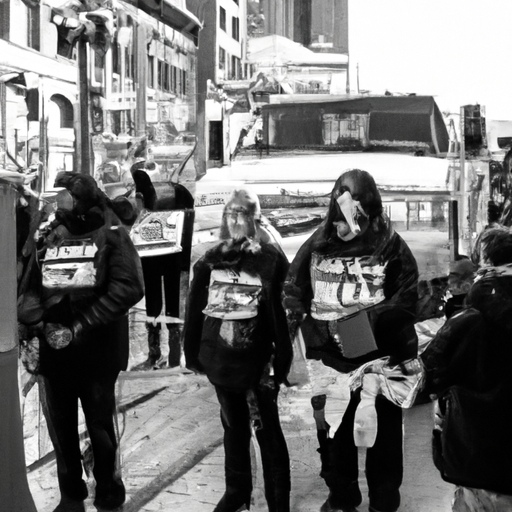A Critical Look at the Canadian Opioid Crisis: Quebec Joins the Class Action Lawsuit Against Opioid Manufacturers
The relentless grip of the opioid crisis on Canada continues to tighten, leading to a surge in overdoses and associated deaths. Behind the raw numbers exists a grim reality: lives lost, families devastated, and communities broken. A new development had recently taken place in Quebec, prompting a discussion we need to have. The Quebec government is seriously considering joining a class action lawsuit against opioid manufacturers, signalling a significant shift in the governmental response to the opioid crisis.
The Consequences of the Opioid Crisis
As the opioid crisis deepens, the effects are far-reaching and highly damaging. Here are just a few of the clear and present consequences:
- Increase in overdose rates: The number of opioid-related deaths in Canada is steadily climbing, with a record-setting 4,000 people losing their lives in 2018.
- Rise in crime rates: As addiction takes hold, individuals are more likely to engage in criminal behavior to sustain their addiction, leading to a corresponding spike in crime rates.
- Escalation of homelessness: Struggling with addictions, many Canadians are finding themselves homeless. This cycle of homelessness and dependency further exacerbates the crisis.
The Class Action Lawsuit Against Opioid Manufacturers
In an unprecedented move, the Quebec government is considering joining a class action lawsuit against opioid manufacturers. The lawsuit places blame on the pharmaceutical companies for their role in the opioid crisis, charging them with the deliberate misrepresentation of the addictive nature of opioids.
This move, if formalized, would serve as a powerful statement of intent, indicating a determined stance against those who potentially bear responsibility for fuelling the opioid crisis in Quebec and across Canada.
The Potential Impact
Should Quebec join the class action, it could have far-reaching implications. It would not only provide justice for the lives lost to opioid overdoses but could also deter pharmaceutical companies from engaging in similarly misleading marketing tactics in the future. Moreover, any financial restitution from the lawsuit could be put towards intensive treatment and prevention programs, potentially saving lives and driving down rates of addiction.
Tackling the Opioid Crisis: Proactive Measures
While holding opioid manufacturers accountable is one aspect of combatting the opioid crisis, proactive measures are also being taken. These include:
- Distributing naloxone kits: Naloxone, a medication capable of quickly reversing the effects of an opioid overdose, is being widely distributed in affected areas. Quick access to naloxone can often mean the difference between life and death.
- Implementing harm reduction strategies: Programs such as supervised consumption sites, needle exchange services, and drug testing facilities are being utilized to reduce the harm caused by opioid drugs.
In Conclusion
The opioid crisis is a national tragedy that requires an all-encompassing and urgent solution. The potential of Quebec joining the opioid class action lawsuit against opioid manufacturers represents a promising shift in addressing the crisis-acknowledging the role of pharmaceutical companies and holding them accountable for the havoc wreaked by opioids.
However, we must remember that tackling the opioid crisis is not a single-faceted approach. Punitive measures against negligent opioid manufacturers, while necessary, need to be complemented by comprehensive harm reduction strategies and a commitment to the distribution of life-saving medications, such as naloxone.
This is a colossal fight, but discussions like these are stepping stones towards a future free from the grip of the opioid crisis.
Keywords: opioids, opioid crisis, opioid class action, homeless, crime, naloxone
